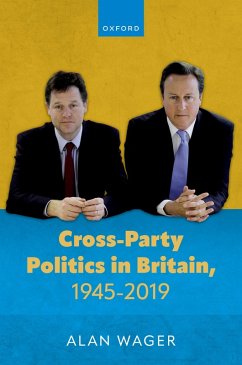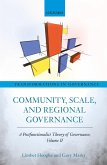British politics has long been conceived of as fundamentally a majoritarian, two-party game. The coalition government, and years of politicians working across party lines on Brexit, were both thought of as deviations from the norm. Yet since the Second World War, and the new party system that came with it, this kind of co-operation between parties has been mooted more often than folk memory would suggest. From Winston Churchill to Nick Clegg, Tony Blair to Nigel Farage, elite British politicians have privately and publicly toyed with the concept of co-operating with their competitors. Cross-Party Politics in Britain, 1945-2019 takes a historical-comparative look at seven such cases from the last 80 years. By retracing tales of failure as well as success, this book examines moments overlooked by historians of contemporary Britain, and most are examined through the lens of political science for the first time. Piecing together internal papers and memos from the archives as well as interviews with many of the key players, this book explores two questions. Why are politicians so often swimming against the tide when trying to co-operate with their competitors, even when it appears rational to do so? And, despite the challenges imposed by the Westminster Model, what is it that motivates those that try? The answers to these questions put recent developments in British politics in historical perspective, and provide clues as to what might happen when the idea of co-operation rears its head once again as the next general election approaches.
Dieser Download kann aus rechtlichen Gründen nur mit Rechnungsadresse in A, B, BG, CY, CZ, D, DK, EW, E, FIN, F, GR, HR, H, IRL, I, LT, L, LR, M, NL, PL, P, R, S, SLO, SK ausgeliefert werden.









